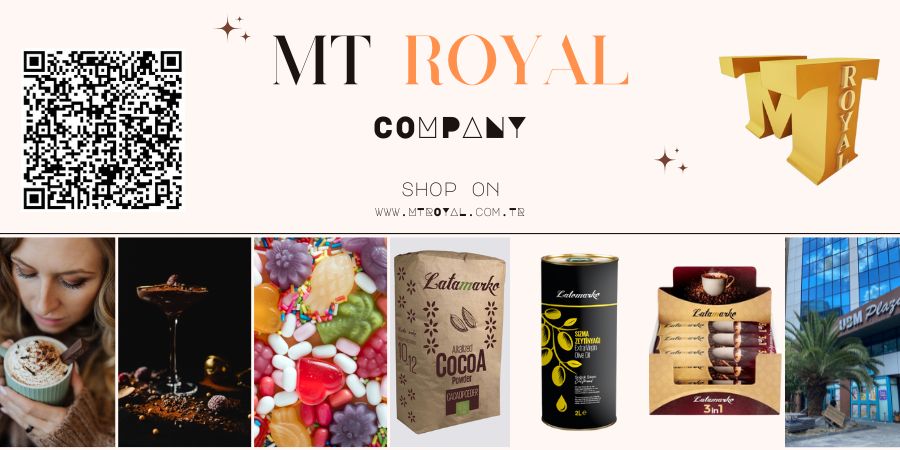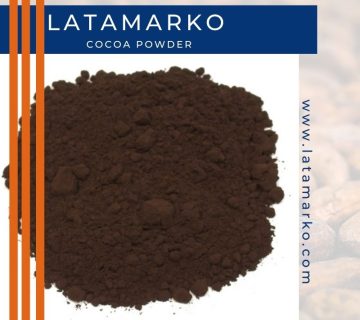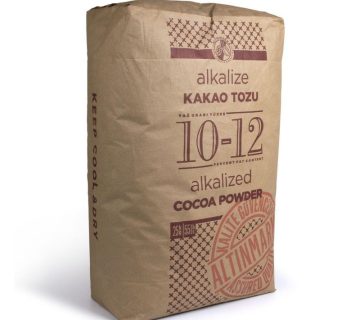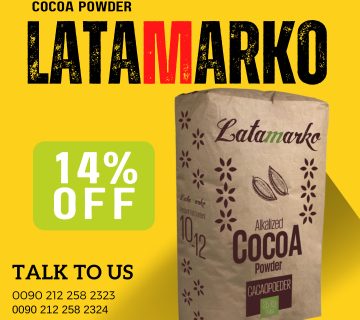Your Comprehensive Guide to Raw Materials for Non-Dairy Creamers with MT Royal Company
In the evolving landscape of food and beverage products, non-dairy creamers have carved out a significant niche. With an increasing number of consumers looking for plant-based alternatives to dairy, the demand for high-quality non-dairy creamers is on the rise. These versatile products are not only popular among those with lactose intolerance but also appeal to a growing health-conscious demographic. At MT Royal Company, we specialize in providing businesses with the essential raw materials for non-dairy creamers, ensuring that you can create superior products that meet consumer demands.
This comprehensive guide will explore the raw materials needed for non-dairy creamers, why partnering with MT Royal is advantageous for your business, and the steps involved in importing these essential ingredients. Let’s dive into the world of non-dairy creamers and discover how MT Royal can help you succeed in this competitive market.

Understanding Non-Dairy Creamers
Non-dairy creamers are plant-based alternatives to traditional dairy creamers, commonly used in coffee, tea, baking, and cooking. They are available in liquid, powder, and concentrated forms, providing versatility in both home and commercial kitchens. The appeal of non-dairy creamers lies in their ability to offer the creaminess and richness associated with dairy without using animal products.
The Rise of Non-Dairy Creamers
Several factors contribute to the growing popularity of non-dairy creamers:
- Health Consciousness: Many consumers are looking to reduce their intake of saturated fats and cholesterol associated with dairy products.
- Lactose Intolerance: A significant portion of the population is lactose intolerant, making non-dairy alternatives a necessity.
- Vegan and Plant-Based Diets: The rise of veganism and plant-based diets has prompted consumers to seek out non-dairy options that fit their lifestyle.
- Flavor Variety: Non-dairy creamers are available in various flavors, providing consumers with choices that suit their taste preferences.
Raw Materials for Non-Dairy Creamers
Creating high-quality non-dairy creamers requires a blend of raw materials that contribute to the desired texture, flavor, and stability. Here’s a comprehensive list of the key raw materials used in the production of non-dairy creamers:
1. Plant-Based Bases
- Coconut Milk: Provides a rich, creamy texture and a subtle coconut flavor.
- Almond Milk: Light and nutty, almond milk adds flavor while keeping calories low.
- Soy Milk: A popular choice due to its protein content and creamy texture.
- Oat Milk: Known for its naturally sweet flavor and creamy consistency, oat milk is becoming increasingly popular.
- Rice Milk: A lighter alternative, rice milk is often used for its mild flavor and low allergenic properties.
2. Thickeners and Stabilizers
- Guar Gum: A natural thickening agent derived from guar beans, used to improve texture.
- Xanthan Gum: Commonly used to stabilize and thicken non-dairy creamers, helping to prevent separation.
- Carrageenan: Extracted from red seaweed, it helps create a smooth texture in liquid creamers.
- Locust Bean Gum: Another thickening agent that adds creaminess and helps stabilize the product.
3. Sweeteners
- Sucrose: Common table sugar used for sweetness.
- Dextrose: A simple sugar that enhances flavor without overpowering it.
- Agave Syrup: A natural sweetener with a lower glycemic index than sugar.
- Stevia: A zero-calorie sweetener derived from the leaves of the stevia plant, popular in health-conscious products.
4. Oils and Emulsifiers
- Sunflower Oil: Often used for its neutral flavor and ability to enhance creaminess.
- Canola Oil: A light oil that adds smoothness and a pleasant mouthfeel.
- Soy Lecithin: An emulsifier that helps blend ingredients and improve texture.
- Palm Oil: Sometimes used to create a creamy consistency, though its use is subject to sustainability concerns.
5. Flavorings and Additives
- Natural Flavors: Derived from plant sources to provide a variety of flavor profiles (e.g., vanilla, hazelnut).
- Salt: A small amount enhances flavor without making the product salty.
- Vitamins and Minerals: Fortifying non-dairy creamers with nutrients such as calcium and vitamin D can appeal to health-conscious consumers.
6. Preservatives
- Potassium Sorbate: Commonly used to inhibit mold and yeast growth, extending shelf life.
- Sodium Benzoate: Another preservative that helps maintain product freshness.
Why Choose MT Royal Company?
When it comes to sourcing raw materials for non-dairy creamers, partnering with MT Royal offers numerous advantages:
1. Extensive Supplier Network
MT Royal has established strong relationships with trusted suppliers in Turkey and beyond. This extensive network allows us to connect you with reliable producers who meet high-quality standards, ensuring that you receive the best raw materials for your non-dairy creamers.
2. Expertise in Food Import Regulations
Navigating food import regulations can be complex, particularly when dealing with various ingredients. Our team is well-versed in the regulatory landscape, ensuring compliance with all necessary import laws and customs procedures. We guide you through the necessary regulations, minimizing potential delays.
3. Quality Assurance
Quality is paramount when it comes to food ingredients. At MT Royal, we prioritize quality by conducting thorough inspections and working only with reputable suppliers. Each batch of raw materials undergoes rigorous testing to ensure it meets international safety and quality standards.
4. Competitive Pricing
Our commitment to providing competitive pricing on all our raw materials allows you to source high-quality ingredients without exceeding your budget. By streamlining our supply chain and working directly with producers, we can pass savings onto you.
5. Personalized Support
We understand that every business is unique, which is why we offer personalized support tailored to your specific needs. Whether you require product recommendations, assistance with documentation, or logistical coordination, our dedicated team is here to help.
6. Efficient Logistics
Timely delivery is crucial in the food industry. Our established logistics network ensures that your orders of raw materials for non-dairy creamers are shipped promptly and arrive in optimal condition. You can rely on MT Royal to manage all aspects of logistics, from shipping to customs clearance.
Steps to Import Raw Materials for Non-Dairy Creamers
Understanding the importation process is vital for successful sourcing. Here’s a step-by-step guide on how to import raw materials for non-dairy creamers:
Step 1: Identify Your Product Needs
Start by researching the specific raw materials you need for your non-dairy creamers. Consider factors such as market demand, quality requirements, and potential suppliers. MT Royal can assist you in identifying suitable ingredients that align with your business objectives.
Step 2: Establish Relationships with Trusted Suppliers
Building relationships with reputable suppliers is crucial for successful imports. At MT Royal, we have established partnerships with top suppliers, allowing us to connect you with producers who meet your quality and pricing criteria.
Step 3: Obtain Necessary Documentation
Gather all required documentation for your imports. This may include:
- Commercial Invoice: A detailed description of the transaction between the buyer and seller.
- Packing List: An itemized list of the goods being shipped.
- Certificates of Origin: Documentation confirming the country of origin of the products.
- Health and Safety Certificates: Required to verify compliance with food safety standards.
- Import Permits: Ensure you have any required import permits based on the product type.
MT Royal will assist you in obtaining the necessary documentation, ensuring compliance with regulations.
Step 4: Collaborate with MT Royal
Engaging with MT Royal will streamline your import process. Our team will guide you through the necessary steps and ensure that all documentation is in order. We will assist in liaising with suppliers and managing logistics.
Step 5: Customs Clearance
Once your raw materials arrive in Turkey, they will need to undergo customs clearance. Our experienced team will handle this process on your behalf, ensuring that all required documentation is submitted accurately and promptly.
Step 6: Delivery to Your Location
After customs clearance is complete, we will coordinate the delivery of your raw materials to your specified location. Our logistics network ensures that your imported goods arrive on time, ready for production.
Step 7: Quality Control Upon Arrival
Once your raw materials have been delivered, it’s essential to conduct quality control checks to ensure they meet your specifications. MT Royal is committed to supporting you in this process by providing guidance on best practices for quality assurance.
Step 8: Maintain Communication with Suppliers
Keeping lines of communication open with your suppliers and with MT Royal is vital for successful importation. Regular updates and feedback can help ensure a smooth process for future orders and enhance your overall experience.

Understanding Tariffs and Duties
When importing food products into Turkey, it’s important to be aware of any applicable tariffs and duties. The Turkish Customs and Trade Ministry establishes these rates, which can vary depending on the type of product being imported. MT Royal can provide insights into potential costs associated with your imports, helping you budget effectively.
Overcoming Challenges in the Import Process
Importing food products can present challenges, from regulatory compliance to logistical hurdles. Here’s how MT Royal helps you navigate potential issues:
1. Regulatory Compliance
Understanding and complying with Turkey’s import regulations for food can be complex. Our team provides expert guidance to ensure that all documentation and processes adhere to legal requirements, minimizing the risk of fines or delays.
2. Quality Assurance
Quality control is paramount when importing food products. MT Royal conducts thorough inspections and works with trusted suppliers to ensure that the products you import meet the highest standards.
3. Logistical Coordination
Transporting food products can involve logistical complexities. Our experienced logistics team manages all aspects of the supply chain, from shipping to warehousing, ensuring that your products are delivered on time and in excellent condition.
4. Adaptability to Market Changes
The food industry is ever-evolving, with changing consumer preferences and regulatory updates. MT Royal stays ahead of trends and market shifts, providing you with timely information and insights to adapt your import strategy effectively.
Conclusion: Partnering with MT Royal for Success
When it comes to sourcing raw materials for non-dairy creamers, MT Royal Company is your trusted partner for quality and excellence. Our commitment to high-quality ingredients, competitive pricing, and exceptional service makes us the ideal choice for all your import needs.
Don’t miss out on the opportunity to enhance your product offerings with top-quality raw materials from Turkey. Experience the benefits of partnering with MT Royal today! Contact us to explore our extensive range of products and discover how we can help you navigate the complexities of the import process. Together, let’s unlock the potential of the Turkish market and ensure your business thrives in this competitive landscape!
Explore our selection of premium food raw materials.
Import-Export Companies in Türkiye with 99% discount
Food industry raw materials – list of products






No comment